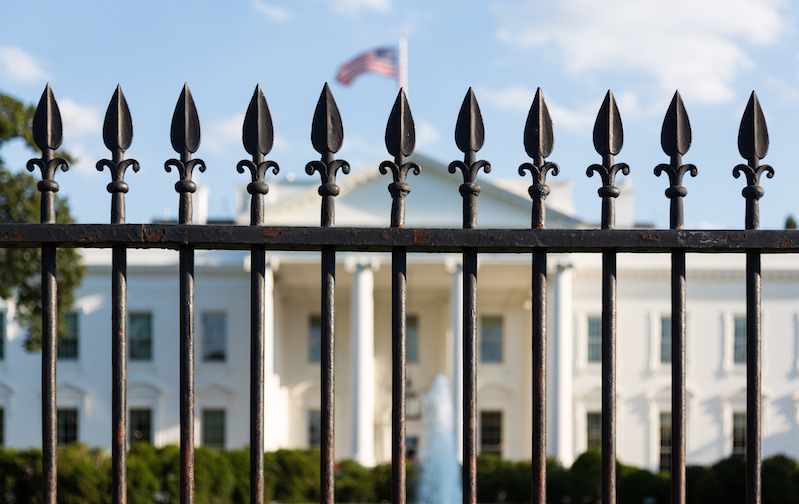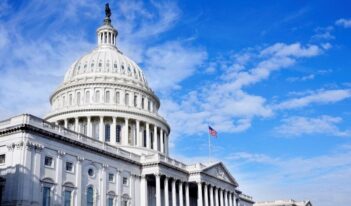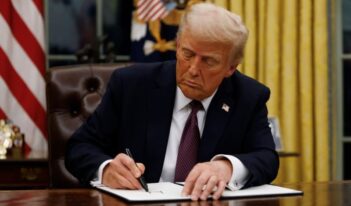
In its novel effort to bring independent agency regulations under White House oversight, the Trump Administration may have found a lasting legacy.
Two weeks ago, the White House Office of Management and Budget (OMB) issued a memorandum that has effectively extended review of regulations by OMB’s Office of Information and Regulatory Affairs (OIRA) to independent agencies. Until now, OIRA review has been limited to regulations issued by executive agencies—that is, cabinet departments and other agencies headed by officials who can be fired at the President’s whim. The memo also makes clear that non-legislative rules, or “guidance documents,” are subject to the Congressional Review Act and OIRA review, whether issued by executive or independent agencies.
The memo from OMB is the latest in a series of regulatory process reforms to come out of the Trump Administration. Within the Administration’s first month, President Donald J. Trump issued Executive Order 13,771, which imposed a regulatory budget constraint on executive agencies and required them to remove two regulations for every new significant regulation they adopted. The following year, OMB adopted another important change when it signed an agreement with the Treasury Department to subject Internal Revenue Service regulations to OIRA review.
These regulatory process changes, arguably the most significant ones to come from any White House since President Reagan inaugurated OIRA review, come in the wake of numerous unsuccessful attempts to pass legislation to reform the regulatory process. Regulatory reform legislation has uniformly failed to gain the bipartisan support necessary to secure passage—and prospects for gaining such support in the near future remain extremely slim.
In the absence of legislative reforms to the regulatory process, reforms initiated by the White House can be significant. But they also can be fragile. Issued via executive orders or memos from OMB, these White House-initiated reforms can be easily reversed the same way by a future administration. Given the hostility of Democrats to everything having to do with the Trump Administration, will any of the reforms put forward under the current President endure?
History may be instructive on this question. In issuing Executive Order 12,291, President Ronald Reagan required executive branch agencies to conduct regulatory impact analyses (RIAs) and to submit their proposed and final regulations to OIRA for review. Many agencies subject to the order opposed these reforms, as did congressional Democrats and interest groups that support stricter regulation. Many of these opponents expected repeal of EO 12,291 when a Democrat took the presidency.
Instead, President William J. Clinton issued Executive Order 12,866—which did technically repeal 12,291 in the course of putting in place a new framework for regulatory review by OIRA, but nevertheless kept its spirit very much alive. Executive Order 12,866 made non-trivial changes to the process established under Executive Order 12,291, but most importantly it retained the principles of cost-benefit analysis found in 12,291 as well as the requirement that executive agencies conduct RIAs for their most important regulations and submit them to OIRA for review. Since then, three presidents have kept Executive Order 12,866 in place.
Why has the structure originally established by President Reagan survived for so long? Although initially perceived as an anti-regulatory tool (and likely intended as such), neither the use of cost-benefit analysis nor the practice of White House review of regulation necessarily works against government regulation. Cost-benefit analysis has been used to justify many regulatory initiatives over the past several decades. The review process also allows Presidents and their staff members to better understand the consequences of the regulatory decisions being made by executive agencies.
OIRA review fulfills a critical function from the perspective of a President. Fairly or not, Presidents get credit and blame for the actions of government agencies. No matter whether they are Democrats or Republicans, liberals or conservatives, Presidents face immense incentives to exercise careful oversight over agencies. Both OIRA review and, to a lesser degree, cost-benefit analysis help satisfy that demand for presidential oversight.
This gives us a clue as to the durability of the initiatives put forward by the Trump Administration. Of the major Trump Administration reforms to the regulatory process, only the extension of OIRA review to the IRS and to independent agencies will enhance presidential oversight and are likely to be retained by future administrations.
Presidents and their staffs have long considered the question of whether to extend OIRA review to regulations issued by independent agencies. The Trump Administration’s use of the Congressional Review Act to do so adopts a novel tactic for overseeing independent agency regulations. If OMB’s recent memo stands up to the inevitable challenges it will encounter, it will have established a practice that will be attractive to future presidents for the same reason that OIRA review was attractive in the first place.
Similarly, OIRA review of IRS tax regulations is also likely to appeal to future Presidents of any party.
By contrast, the earliest and most attention-grabbing reforms from the Trump Administration do not offer Presidents this same appeal. Both the one-in-two-out approach and the regulatory budget concept are anti-regulatory. Furthermore, they provide none of the benefits in terms of presidential oversight that are not already contained in Executive Order 12,866.
Predicting the future is hard. That has never been truer than in the least predictable presidency in modern history. But some patterns are clear. Presidents like the ability to oversee the regulatory outputs that, in the public’s mind, will become a part of their legacy. For that reason, any new president will likely see OIRA oversight of independent agency and IRS regulations as desirable. But Executive Order 13,771 will be viewed as something that can easily be discarded by a new President who does not share its deregulatory zeal.




